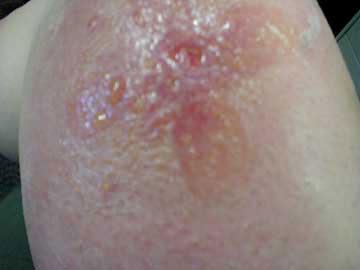Allergies from Our Surroundings: A Closer Look on Sulfite, Mold, Candle, Vaccine, and Pollen Allergies
Sulfite Allergy
Sulfites, a group of sulfur-based compounds, may be added to food as enhancers and preservatives. An estimate of one out of a hundred people sensitive to these compounds has been given by the FDA Sensitivity to sulfites have vague roots. Moreover, it may arise in an individual at any given time.
A potentially fatal reaction to sulfites can occur. However, mild reactions may also take place. Since 1986, a ban has been implemented by the FDA against the use of sulfites on fruits and vegetables that are eaten raw. Manufacturers of processed products are required by law to list sulfites on their product labels when used. A variety of cooked and processed food has added sulfites in their ingredients. Fresh food no longer contains sulfites. Wine and beer have naturally occurring sulfites.
People who experience sensitivity reactions to sulfites should steer clear from products containing sulfites. Habitually reading food labels should be practiced by sulfite sensitive individuals. If you should decide to eat out, ask to speak to the chef and inquire if sulfites have been used in the preparation of your food.
Mold Allergy Facts

The symptoms of mold allergies can occur on different seasons. It may occur during summer or fall. However, it can also occur all year round if mold is present in your home. Keep the basement and bathroom well ventilated. This will help in preventing the fungi to flourish in moist places. In addition, doors and windows should always be kept closed. Make your home well ventilated. In addition, avoid exposure to moist places by keeping the windows and doors of the bathroom and basement closed.
Sporatic molds are parasitic and microscopic fungi. Like pollen, molds can drift above the air. Prevent the occurrence of mold allergy. An individual can do so by avoiding outdoor activities like raking leaves. Molds can be found in damp areas of the home. Two common examples are the basement and bathroom. Molds are also present in the grass, mulch, hay, and other outdoor places.
Candle Allergy Facts
Essential oils are used to perfume candles because it provides a scent similar with autumn leaves and dune grass. According to Dr. Wedner, inflamed nasal cavities can be acquired by inhaling the odor of essential oils. He also suggests that a natural increased sensitivity is present to people having nasal allergies. As a result, being around candles gives them runny nose and watery eyes.
If your nose is sensitive, you may probably have a smelling sensation that is the same as inhaling cigarette smoke. Avoiding candles is advised for people having a nose that is sensitive. However, if you are fond of buying scented candles, consider choosing the ones with a single scent and few ingredients, like candles scented with pumpkin.
Using trial and error method may help you determine which particular scent or ingredient you are allergic to. Breathing some fresh air gives a soothing effect to persons who experience unwanted reactions to a scented candle.
Vaccine Allergy
A serious condition such as anaphylaxis can be brought about by a rare allergy such as vaccine hypersensitivity. A probability of a one in a million chance of developing hypersensitivity reactions to a vaccine is very negligible. Should you decide to vaccinate yourself and family members, weighing in the risks of not doing so should also be included. Mumps and measles may be prevented by having some shots of vaccines required by the school. Parents may also do their responsibility of protecting their children from these life-threatening conditions.
Did you know that vaccines contain allergens that may possibly trigger symptoms of hypersensitivity? There are two main contents that are believed to be most possible allergens: egg protein and gelatin. Flu vaccine and yellow fever vaccine contains the egg protein. On the other hand, Japanese encephalitis, rubella, measles, mumps, and varicella vaccines contain gelatin. By the time thimerosal was used, it already causes allergic reactions to a number of individuals. On the other hand, it has been excluded from the vaccines that are licensed in the US.
Pollen Allergy

These round or oval pollen grains used by plants for reproduction are tiny so that it cannot be seen by the naked eye For some plant species, fertilizing itself would mean to use its own flower pollen. Other types of plants should be pollinated with others of their own species.
In order for the plant’s fertilization to take place and for the seeds to form, the pollen must be transferred from the flower of one plant to that of another of the same species; thus cross-pollination. For certain flowering plants, insects play a big role in transporting pollen. For some, the wind is the only means of transport. Allergic reactions are commonly caused by plain-looking plants that do not have showy flowers such as trees, grasses and weeds. The pollen produced by these plants have to be suitable for air transport, therefore they must be small, light, dry.
If you need to learn much more about Allergy symptoms, don't hesitate to go to the author's website.

